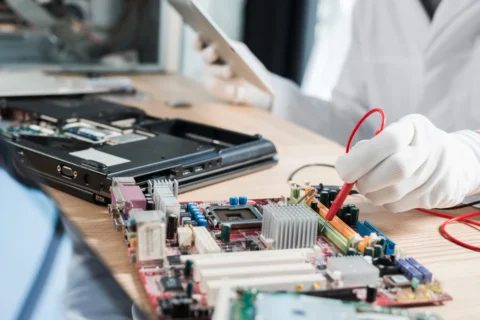Many students planning to pursue engineering often ask: What is the difference between B Tech and BE? While both B.Tech (Bachelor of Technology) and BE (Bachelor of Engineering) are undergraduate degrees in engineering, they have slight differences in course structure, focus, and practical exposure.
This guide will help you understand the key differences between B Tech and BE, so you can make the right choice for your future.
What is B Tech?
B.Tech (Bachelor of Technology) is a 4-year undergraduate engineering degree that emphasizes practical learning, industrial applications, and hands-on experience.
Key Features of B.Tech
✔ Focus: Application-based learning and practical training
✔ Curriculum: Includes industry projects, internships, and lab work
✔ Popular Fields: Computer Science, Mechanical, Civil, Electrical, Electronics, and more
✔ Best for: Students who prefer practical learning and industry exposure
What is BE?
BE (Bachelor of Engineering) is also a 4-year undergraduate engineering degree, but it focuses more on theoretical knowledge and fundamental concepts.
Key Features of BE
✔ Focus: Theoretical and conceptual understanding of engineering principles
✔ Curriculum: More emphasis on mathematics, science, and core engineering subjects
✔ Popular Fields: Mechanical, Civil, Electrical, Electronics, IT, and more
✔ Best for: Students interested in research, teaching, or technical roles
Difference Between B Tech and BE
| Feature | B.Tech (Bachelor of Technology) | BE (Bachelor of Engineering) |
|---|---|---|
| Focus | Practical application & industry exposure | Theoretical knowledge & research |
| Approach | Skill-based learning, lab work, and projects | Conceptual learning with more focus on fundamentals |
| Internships | Mandatory internships & industrial training | Internships are encouraged but not always compulsory |
| Research | Less focus on research, more on real-world applications | More focus on research, innovation, and academics |
| Colleges Offering | IITs, NITs, IIITs, private universities | Government & private engineering colleges |
| Career Paths | Industry jobs, IT firms, MNCs, startups | R&D, government jobs, technical consulting, academia |
| Best For | Students who want hands-on learning and quick industry placement | Students who prefer deep theoretical knowledge and research careers |
Which is Better: B.Tech or BE?
Both B.Tech and BE have their advantages, and the better choice depends on your career goals.
- Choose B.Tech if you want:
✔ Practical learning, real-world experience, and internships
✔ A career in software, IT, manufacturing, or core industries
✔ To work in MNCs, startups, or private companies - Choose BE if you want:
✔ Strong theoretical knowledge and conceptual learning
✔ To pursue research, teaching, or government jobs
✔ A career in R&D, technical consulting, or academia
FAQs on B Tech vs BE
1. Is B Tech better than BE?
B.Tech is better for industry jobs and practical exposure, while BE is better for research and theoretical learning.
2. Do IITs offer BE or B.Tech?
IITs offer B.Tech degrees, as they focus more on applied engineering and technology.
3. Which degree has better job opportunities?
Both degrees offer excellent job prospects, but B.Tech graduates often find faster placements in industries, while BE graduates may choose research-based careers.
4. Can BE students get software jobs?
Yes, BE graduates can work in software companies, but B.Tech in Computer Science is generally preferred for IT and tech roles.
5. Is B.Tech harder than BE?
B.Tech involves more projects, lab work, and industrial training, making it practically challenging, whereas BE has more theoretical subjects.
If you want practical knowledge, industry exposure, and quicker job placement, B.Tech is the better choice. If you prefer deep theoretical learning, research, or government jobs, BE is ideal.
🚀 Next Steps: Research the best B.Tech and BE colleges, compare entrance requirements, and choose a course that aligns with your career goals!





